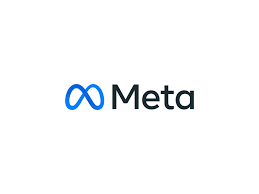Mark Zuckerberg started Meta’s earnings call by talking about artificial intelligence. Then he moved onto the metaverse, touting his company’s headsets, glasses and operating system. He spent almost the entirety of his opening remarks focused on the many ways Meta loses money.
Investors weren’t into it. Meta shares tumbled as much as 19% in extended trading on Wednesday, wiping out more than $200 billion in market cap. The drop came despite Meta reporting better-than-expected profit and revenue for the first quarter.
Zuckerberg appeared ready for the sell-off.
“I think it’s worth calling that out, that we’ve historically seen a lot of volatility in our stock during this phase of our product playbook where we’re investing in scaling a new product but aren’t yet monetizing it,” Zuckerberg said. He cited past efforts like short-video service Reels, Stories and the transition to mobile.
Meta generates 98% of its revenue from digital advertising. But to the extent Zuckerberg talked about ads, he was looking to the future and the ways the company could potentially turn its current investments into ad dollars. In discussing Meta’s effort to build a “leading AI,” he said, “There are several ways to build a massive business here including scaling business messaging, introducing ads or paid content into AI interactions.”
He spent time talking about Meta Llama 3, the company’s newest large language model, and the recent rollout of Meta AI, the company’s answer to OpenAI’s ChatGPT.
Zuckerberg then moved onto potential opportunities for expansion within the mixed reality headset market, like a headset for work or fitness. Meta opened up access to the operating system that powers its Quest headsets on Monday, which Zuckerberg said will help the mixed reality ecosystem grow faster.
He also talked up Meta’s AR glasses, which he called “the ideal device for an AI assistant because you can let them see what you see and hear what you hear.”
In the meantime, Meta’s Reality Labs Unit which houses the company’s hardware and software for development of the nascent metaverse, continues to bleed cash. Reality Labs reported sales of $440 million for the first quarter and $3.85 billion in losses. The division’s cumulative losses since the end of 2020 have topped $45 billion.
Zuckerberg has bought himself some time.
Meta’s stock price almost tripled last year and, as of Wednesday’s close, was up 40% in 2024. It reached a record $527.34 in early April.
After a messy 2022, during which the company lost about two-thirds of its value, Zuckerberg appears to have regained the confidence of Wall Street.
The driver for the rally has been a cost-cutting plan that the Meta CEO put in place early last year, when he told investors that 2023 would be the “year of efficiency”. The company slashed headcount and eliminated unnecessary projects in an effort to become a “stronger and more nimble organization.”
Zuckerberg said Wednesday that Meta will continue to operate efficiently, but that shifting existing resources to investments in AI will “grow our investment envelope meaningfully.”
Join our WhatsApp community via https://rb.gy/7jahti for instant and latest news updates.

